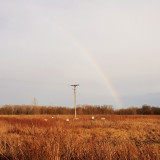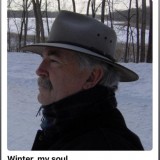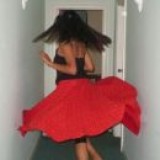Effective Writing.
-
Poet on the Piano
10 years agoHi guys, hope you're all having a good week. My professor in expository writing (who told us he's a poet as well!) brought up some eye-opening points today in his lecture. Don't know if anyone else has read these tips before, but want to share with you what he shared with us.
These are from George Orwell:
1. Never use a metaphor, simile, or other figure of speech which you are used to seeing in print.
2. Never use a long word where a short one will do.
3. If it is possible to cut a word out, always cut it out.
4. Never use the passive where you can use the active.
5. Never use a foreign phrase, a scientific word, or a jargon word if you can think of an everyday English equivalent.
6. Break any of these rules sooner than saying anything outright barbarous.
Do you agree and/or disagree with any of them?
My professor also had us do an exercise to pick out flaws in fiction and non-fiction excerpts written by his students. A major one was overuse of the exclamation point. He stated that mark shouldn't even be needed because the words should speak for themselves. Also realized the importance of ellipses; I misuse them a lot since technically they are "three dots" and only used for omission. What punctuation or word do you find you overuse/misuse the most?
Best advice he gave, and that had me nodding my head, is that you have to know what you're doing as an author. Heck, I used to and still refer to theasurus.com at certain times so I don't get repetitive with words, and I know that could possibly be a bad habit if I mix too many words/ideas together that there is little meaning. I think it's fine if you start writing a poem and bring the idea together at the end, or even if changing direction, but you need some guidance for the reader (whatever audience). -
Michael D Nalley
10 years agoI think in many of my 900+ poems I have gone from esoteric to cliché. I believe in some circles all of the above rules have been broken at one time or another, not to mention some unwritten rules I have picked up from my critiques here lol
A dare say this poem from a relatively well known writer would get slammed here
'The zinc roofs in the moonlight
And the tin shop, the gas tank
And the water tank, all look like silver.
Like a star, like a cigarette,
Far out, over Nally's hill,
A passenger plane
Passes and flashes in the night.'
TM
(ANYONE CARE TO GUESS THE NAME OF THE WRITTER) -
Hellon
10 years agoThis was a very interesting post Maryanne so...thank you very much for sharing. I'm not sure how old these rules by George Orwell are but, as Michael says...most rules will be broken at some point and...sometimes it quite exciting to break/see them broken haha!!!
As for the ellipsis...I will focus on this part simple because I use them a lot as you probably observe :) This part I would have to disagree with...
I misuse them a lot since technically they are "three dots" and only used for omission
yes, they generally come in a group of three but, not necessarily just for omission as you can read here...
http://en.wikipedia.org/wiki/Ellipsis
Normally I use them to create a slight pause...rather than the larger pause that I feel a period indicates and also to sometimes drag a thought to a place where the reader can perhaps make up their own mind as to what I'm hinting at without me actually having suggested a particular thought. Just my input...thanks again for sharing...I'm always really interested to hear what's being taught/discussed in schools and colleges these days. -
Everlasting
10 years ago1. Never use a metaphor, simile, or other figure of speech which you are used to seeing in print.
^^ What if I did but I wrote it with another meaning? -
Larry Chamberlin
10 years agoIn that case you're Bob Dylan
-
-
Beautiful Soul
10 years agoHahaha Larry I love that answer :). " you'd be bob Dylan," very clever
-
silvershoes
10 years agoI love me some Orwell. I've read his list and it's pretty similar to what other professional writers suggest. Have to say I agree, though an intelligent enough writer can make exceptions here and there. And of course poetry is different than prose.
-
abracadabra
10 years agoNo, I'd say he was talking about writing in general.
He says never use a figure of speech that you are used to seeing in print. So use metaphors and similes, but use good, creative, true ones. Stay away from "blue as the sea" and "shiver down my spine".
Another favourite writing quote of mine comes from Vonnegut:
"Here is a lesson in creative writing. First rule: Do not use semicolons. They are transvestite hermaphrodites representing absolutely nothing. All they do is show you've been to college." -
Larry Chamberlin
10 years ago^"semicolons ... are transvestite hermaphrodites"
; = Dr. Frank-N-Furter ?! -
silvershoes
10 years agoHell, I've mixed feelings about semi-colons, but I'd never toss them to the wind.
Also, I rarely follow writing rules. -
abracadabra
10 years agoHa, no, semicolons have their place in the world. I think Vonnegut used it soon after in the same chapter and mocked himself.
But I would apply Orwell's #3 rule when using it, replacing 'word' with 'semicolon'.
And #6 is always there.










